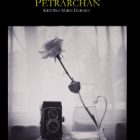An Interview with Bruce Machart

If I were building an anthology of my favorite stories, Bruce Machart’s “What You’re Walking Around Without” would certainly be included. It’s the kind of story that sticks with you for days on end, and still when I think of it, the images come rushing back—organs sloshing in the back of a Chrysler, Dean Covin’s lazy eye, endless darkness and oppressive heat inside a void tank.“What You’re Walking Around Without” also represented one of the first times I read a story by a writer and then realized I could follow his or her career through literary magazines. Whenever I saw one of Machart’s stories in a table of contents, I looked forward to the best kind of realism: that which made me see myself in the most unlikely of places and the most unlikely of characters. Machart finds humanity in people who perform tasks that we can barely imagine but face problems much like our own. His characters move through the world as if walking in deep wheel ruts on a dirt road: unable to turn, unable to do anything but what has been done before.
Almost exactly a year apart, Machart produced two books: a brilliant novel, The Wake of Forgiveness, which details the lives of a family of Czech farmers in Texas, and a collection of stories, Men in the Making, that holds up as a whole better than most novels.
I had an opportunity to chat with Bruce about both books and his process in writing them.
James Scott: Let’s start with The Wake of Forgiveness. How much research did you do, and how much did your own experiences feed into the texture of the novel? I’m thinking especially of horse riding, farming, etc.
Bruce Machart: I was lucky in that I really only ever had to do informal research. My father grew up on a cash crop farm in roughly the same region of Texas where the book is set. I’ve had the chance to infuriate a few horses in my life with my poor riding skills. But mostly I learned about Lavaca County during this time by reading all of the local newspapers that were printed in the weeks before and after the events of the novel. Because they were often written in the vernacular, these newspapers became my go-to source for the sake of verisimilitude in the novel. Not only did they offer a sense of idiom and colloquial language, but they reported on the weather, or local business. And the advertisements were invaluable. They answered so many questions: What did a board foot of lumber cost? What did the farmers use to ameliorate their bowel troubles and the “soft frogs” of their horses? Where did one shop for tractor parts and which polka orchestras were playing? Damn near everything.
JS: Ameliorating bowel troubles is definitely a big concern for any historical novel.
What was the kernel that became The Wake of Forgiveness—what were the first couple of ideas that really caught and gained momentum? How did you know it was more than a story?
BM: A long while back, my father told me a story about this man who farmed the land near my grandfather’s. Either out of meanness or financial desperation or both, this man had harnessed his own sons to the plow. Their necks were kinked badly because of the constant strain of pulling the plow though the earth. I thought, Well, that is unbelievable, and when I find an example of something difficult to believe, I tend to put myself to the challenge of trying to render it believably as a work of realism. It took a while, but I generally wait for two impulses to converge in my imagination. Only when that happens do I begin to think, Hell, this might make for a story! So when I found myself wondering about motherless boys, about how they grow to be men without the comfort and compassion and love that our mothers usually give us, I suddenly imagined that those boys pulling that plow must be motherless. I wrote a chapter. I wrote another. There didn’t seem to be any way for me to imagine it with the efficiency of scope or drama that a short story demands. I knew I had on my hands either a novel or a failed attempt at one, and there was no turning back until I knew which would prove to be the case.
JS: The idea of taking the strangeness of life and trying to make it work on the page is something I think about all the time. It’s easier in the shorter form, I think. How do you approach a short story as opposed to the novel?
BM: I write stories with the expectation that I will get to the heart of it in due time. I wrote the novel in a blind state of faith. I didn’t know where it was going. Didn’t know how it would end. Often, I didn’t know why I was subjecting myself to a process so long and full of uncertainties. If I don’t finish a story in a month or two, I stick it in a drawer and move on to something else. If you don’t find the end of a novel, you might have spent three or four years failing, and I worry that my self-confidence is a bit too fragile to sustain such a blow.
JS: I think I speak for many people when I say it was great to see Men in the Making on the horizon so soon after The Wake of Forgiveness. What was your timeline like in completing them?
BM: Yeah, it gives the false impression that I’m a fast worker. I’m not. I plod. I take weeks and months off. I second-guess and fret and obsess. In truth, these stories, with only a few revisions as exceptions, were written before I wrote the bulk of the novel. Houghton Mifflin thought it would be easier to follow a novel with a story collection rather than debut with stories. I think, with hindsight doing what it does, that it was a good decision. I’ll guarantee you this much: There ain’t going to be another Bruce Machart book coming out next year.
JS: BOOOO! Get to work! It’s good to hear, not just for me, but for aspiring writers out there, that you can actually take a break. Every time I take a day or two off, I drag out the cat-o’-nine-tails and teach myself a lesson. Mentally.
I assume you culled these short stories from a bigger group. Did they immediately hang together? Because as far as collections go, they really inform one another. What was that process like?
BM: It seems I’m forever writing without a conscious sense of why I’m doing it. Almost everything that has any worth in my work catches me unawares. It’s the subconscious, I suppose. It’s all in there somewhere, but I don’t have much access to it until I sit down to write and get myself zoned in to that “fictive dream” John Gardner spoke of. So, yeah…I wrote a bunch of stories, and several of them didn’t fit in this collection. I didn’t know at the time I was writing all these stories about the vulnerability of men in an age when the rules were changing, when men who had been taught to expect themselves to be providers and protectors found themselves unable to be so. I just looked at the stories one day, and it was there, and then I had the title of the book.
JS: This goes for both the novel and the short stories—your characters are so vivid. Characters like Tom in “The Last One Left in Arkansas” have such a resigned quality to them—they know how things are going to turn out, but they’re still plugging away, almost afraid to hope. (I think we have the same experience as we read.) How do you create them? Do you start with jobs? They’re so critical, it seems, to their identities.
BM: Well, that’s kind of you to say. I’d like to think that I start stories the way most writers who love their characters do—with the basic notion of character, setting, and conflict. I call it people, place, problem. And the story depends upon the inextricability of the three. For me, work is a function of character, and it often binds character further to place. We are, after all, to some extent, what we do. If you don’t know someone’s name, you often name them by their occupation (which is how some names originated in the first place). You say, he’s a doctor, she’s a lawyer, that’s my mailman. And so I suppose it’s true for me that I can’t fully imagine a character (and fully imagining character is imperative) without knowing what he does, how he identifies with his work.
JS: And then does the plot flow out of that? It seems like your plots kind of conform to the characters, which is a compliment, I think, to the organic nature of all of your writing. It all feels so real.
BM: Thanks so much. I certainly take it as a compliment. For me, that’s the key, and it is a function of my understanding of plot. There’s nothing more detrimental to my writing than my occasional attempts to force my characters through some die of my preconceived notions of “what should happen next.” The only way I can succeed is by paying close attention to the people I breathe into being on the page. If I know them well enough, know where they are from and what they do completely, empathize with them strongly enough, I will be true to what they would do and think and say. Eudora Welty once wrote that place is the “lesser angel of fiction.” What I take her to have meant is that character is therefore the arc angel. There is no fictional heaven or earth without it.
JS: Regarding place and setting—obviously some of them mirror some of the places where you’ve lived and spent time. Do you find it easier to physically be there or to have some separation?
BM: I have done it both ways. I’ve written some of my best Texas scenes while staring out some window at the dizzying snows of Massachusetts or at the gray pall that descends upon the flatlands of Ohio in late fall. But I also managed to write a great deal of the novel with my rear planted solidly somewhere in my homeland of Texas. I think the fact that I’ve lived elsewhere allows for a kind of reckoning. Texas has such a mythos about it, such a self-promoted sense of its own uniqueness. It’s good to get away from that. It’s good to feel longing and nostalgia and a far-flung fondness. It feeds my desire to be there, and when I’m not there, I know how to get there. I just have to quit procrastinating and get down to writing.
JS: This is kind of my stock question, but as a teacher as well as a writer, do you think the short story is a necessity on the way to a novel?
BM: Evidence suggests strongly otherwise. There are some heartbreakingly good novelists who have never really written short stories. For me, though, it was vital. Short stories were my first literary love, both as a reader and a writer. I would have failed miserably had I tried to write a novel without having tried and failed and improved over many years as a short story writer.
JS: This seems like kind of an obnoxious question for someone with two books out on each other’s heels, but what are you working on now?
BM: I’ve begun a new novel, which I’m pretty sure will be titled Until Daylight Delivers Me, after a quote from a lovely William Maxwell essay. I have what I need to make a go of it: people, place, problem, and the stubbornness to keep at it, however haltingly.



